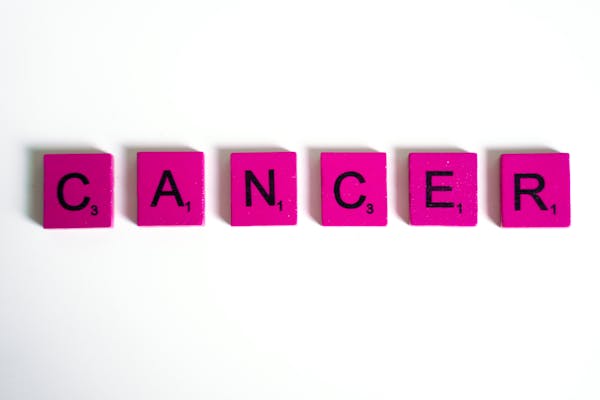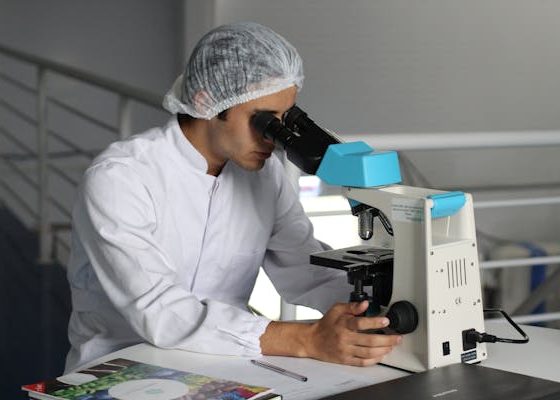Cancer is one of the most feared diseases worldwide, with millions of new cases diagnosed each year. It can strike anyone, irrespective of age, gender, or lifestyle. Despite the global efforts to understand and treat cancer, the question remains: can cancer be cured? This article delves into the complexities of cancer, the current state of treatment, and the potential future of curing this elusive disease.

What is Cancer?
At its core, cancer is the uncontrolled growth of abnormal cells in the body. These cells form tumors, which can invade surrounding tissues and, in some cases, spread to distant parts of the body through the bloodstream or lymphatic system. This process, known as metastasis, is often the primary reason why cancer becomes life-threatening.
There are over 100 different types of cancer, including breast cancer, lung cancer, prostate cancer, skin cancer, and leukemia, each with unique characteristics and behaviors. However, all cancers share one defining feature: the failure of the body’s normal cell regulatory mechanisms. Normally, cells grow, divide, and die in a controlled way. When this process is disrupted, cells begin to proliferate uncontrollably, leading to the formation of tumors.
The Causes of Cancer
Cancer is a multifactorial disease, meaning it can be caused by a combination of genetic, environmental, and lifestyle factors. Some of the most common causes include:
- Genetics: Certain mutations in genes can increase the risk of developing cancer. For example, mutations in the BRCA1 and BRCA2 genes are linked to a higher risk of breast and ovarian cancer.
- Carcinogens: These are substances that can cause cancer. Tobacco smoke, asbestos, and ultraviolet (UV) radiation from the sun are well-known carcinogens.
- Lifestyle Factors: Poor diet, lack of exercise, and excessive alcohol consumption have been linked to an increased risk of various cancers.
- Infections: Certain viruses, such as the human papillomavirus (HPV), can cause cancer. HPV is known to cause cervical cancer, while hepatitis B and C viruses are linked to liver cancer.
Can Cancer Be Cured? The Challenge of Defining a “Cure”
The concept of curing cancer is complex. In many medical contexts, the term “cure” refers to the complete eradication of a disease, with no risk of recurrence. For some conditions, like bacterial infections, this definition is clear and attainable with antibiotics. But when it comes to cancer, defining a cure is much more nuanced.
Cancer behaves differently than infectious diseases because it originates from the body’s own cells. This makes it more challenging to target and eliminate. Even if a treatment successfully destroys the visible tumor, cancer cells can remain dormant in the body for years, potentially causing a recurrence later on.
Current Treatment Options
The good news is that many advances have been made in cancer treatment over the past few decades. While a universal cure for cancer remains elusive, treatments have become more effective, leading to better survival rates and improved quality of life for patients. Here are the most common treatments used today:
1. Surgery
Surgery is often the first line of treatment for solid tumors. The goal is to remove the tumor and any nearby tissues that may contain cancerous cells. In some cases, surgery can lead to a complete cure, especially if the cancer is caught early and has not spread. However, surgery is not always possible, particularly if the cancer has metastasized or is located in a difficult-to-reach area of the body.
2. Radiation Therapy
Radiation therapy uses high-energy radiation to kill cancer cells. It is often used in combination with surgery or chemotherapy to shrink tumors before surgery or to kill any remaining cancer cells afterward. Radiation therapy can be highly effective, but it also comes with risks, as it can damage healthy tissue surrounding the tumor.
3. Chemotherapy
Chemotherapy involves the use of drugs to kill cancer cells. It is typically used when the cancer has spread to other parts of the body. Chemotherapy drugs target rapidly dividing cells, which includes both cancer cells and some healthy cells, such as those in the bone marrow, digestive tract, and hair follicles. This leads to common side effects like hair loss, nausea, and fatigue.
While chemotherapy can be highly effective in shrinking tumors and controlling cancer, it is not always curative. In many cases, chemotherapy is used to manage cancer as a chronic disease, prolonging life and improving symptoms.
4. Targeted Therapy
Targeted therapies are drugs that specifically target the molecular changes in cancer cells that drive their growth. These treatments are often less toxic than traditional chemotherapy because they aim to disrupt cancer cell growth without affecting healthy cells. Targeted therapies have shown great promise in treating certain cancers, such as chronic myeloid leukemia (CML) and some types of breast cancer.
5. Immunotherapy
One of the most exciting developments in cancer treatment is immunotherapy, which harnesses the body’s immune system to fight cancer. Immunotherapy includes treatments like checkpoint inhibitors, CAR-T cell therapy, and cancer vaccines.
Checkpoint inhibitors work by blocking proteins that prevent the immune system from attacking cancer cells. CAR-T cell therapy involves modifying a patient’s T cells (a type of immune cell) to recognize and destroy cancer cells. While immunotherapy has shown remarkable success in some cancers, it does not work for everyone and is still an area of ongoing research.
Advances in Cancer Research
The quest to answer the question can cancer be cured has led to significant advances in cancer research. Here are some of the most promising areas of research that may bring us closer to a cure:
1. Precision Medicine
Precision medicine tailors treatment to the individual patient based on their genetic makeup and the specific characteristics of their cancer. This approach allows doctors to select treatments that are more likely to be effective for each patient, reducing the trial-and-error approach that has historically been used in cancer treatment. Advances in genomic sequencing have made it easier to identify genetic mutations that drive cancer, leading to more personalized therapies.
2. Liquid Biopsies
A liquid biopsy is a non-invasive test that detects cancer cells or fragments of tumor DNA in the bloodstream. This technology has the potential to revolutionize cancer diagnosis and monitoring. Liquid biopsies could allow doctors to detect cancer earlier, monitor treatment response, and identify the emergence of drug resistance in real time.
3. Cancer Vaccines
While vaccines have long been used to prevent infectious diseases, researchers are now working on vaccines to treat cancer. Therapeutic cancer vaccines are designed to stimulate the immune system to attack cancer cells. The most well-known example is the HPV vaccine, which protects against strains of the virus that cause cervical cancer. Researchers are also exploring vaccines for other cancers, such as prostate and breast cancer.
4. Gene Therapy
Gene therapy is an experimental technique that involves altering a patient’s genes to treat or prevent disease. In the context of cancer, gene therapy may involve inserting, deleting, or modifying genes in cancer cells to stop their growth or make them more susceptible to treatment. While still in the early stages, gene therapy holds great promise for certain types of cancer, particularly those with a strong genetic component.
5. Artificial Intelligence and Machine Learning
Artificial intelligence (AI) and machine learning are increasingly being used to analyze large datasets and identify patterns in cancer research. AI can help predict how different cancers will respond to treatment, identify potential new drug targets, and even assist in interpreting medical images. These technologies have the potential to accelerate cancer research and improve treatment outcomes.
The Role of Early Detection
While much of the focus in cancer research is on finding new treatments, early detection remains one of the most effective ways to improve survival rates. When cancer is detected early, it is often more treatable and may even be curable.
Screening programs for cancers such as breast, cervical, and colorectal cancer have led to earlier diagnoses and better outcomes. However, there is still a need for more effective screening methods for cancers that are harder to detect early, such as pancreatic and ovarian cancer.
Challenges in Curing Cancer
Despite the tremendous progress in cancer treatment, curing cancer remains a monumental challenge. Several factors contribute to the difficulty of finding a universal cure:
1. Heterogeneity of Cancer
One of the biggest challenges in curing cancer is its heterogeneity. Even within a single tumor, there can be multiple types of cancer cells with different genetic mutations. This makes it difficult to develop a single treatment that can target all of the cancer cells effectively. Moreover, different types of cancer respond differently to treatment, and what works for one patient may not work for another.
2. Drug Resistance
Cancer cells can develop resistance to treatment over time, rendering drugs that were once effective useless. This is particularly true for targeted therapies, which can be highly effective initially but often lead to the emergence of drug-resistant cancer cells.
3. Metastasis
Metastasis, or the spread of cancer to other parts of the body, is one of the primary reasons why cancer is so difficult to cure. Once cancer has metastasized, it becomes much harder to treat. Researchers are still working to understand the mechanisms that drive metastasis and how to prevent it.
4. Side Effects of Treatment
Many cancer treatments, such as chemotherapy and radiation therapy, come with significant side effects that can impact a patient’s quality of life. Finding treatments that are both effective and minimally toxic remains a key challenge in cancer research.
The Future of Cancer Treatment
So, can cancer be cured? While a universal cure for all cancers may not be achievable in the near future, the advancements in cancer treatment and research offer hope. The focus has shifted towards personalized medicine, with treatments tailored to the specific genetic makeup of both the patient and the tumor.
The future of cancer treatment is likely to involve a combination of therapies, including surgery, radiation, chemotherapy, targeted therapy, and immunotherapy. Researchers are also working on ways to prevent cancer from developing in the first place, such as through cancer vaccines and lifestyle interventions.
Living with Cancer: A Chronic Disease Approach
For many patients, cancer may become a chronic condition that requires ongoing management, similar to diabetes or heart disease. With the development of new treatments that can control cancer for long periods, many people with cancer are living longer, healthier lives.
This shift towards managing cancer as a chronic disease is particularly important for cancers that are currently incurable, such as metastatic breast cancer or advanced prostate cancer. While these cancers may not be curable, they can often be controlled with treatment, allowing patients to live with the disease for years or even decades.
Conclusion
The question “Can cancer be cured?” does not have a simple answer. While some cancers can be cured, especially when caught early, others remain challenging to treat and may require lifelong management. However, the advances in cancer research and treatment over the past few decades have been remarkable, and there is reason to be optimistic about the future.
With continued investment in research, early detection, and innovative treatments, the outlook for cancer patients will continue to improve. While the ultimate goal of curing all cancers may still be out of reach, the progress being made offers hope to millions of people around the world who are affected by this devastating disease.









